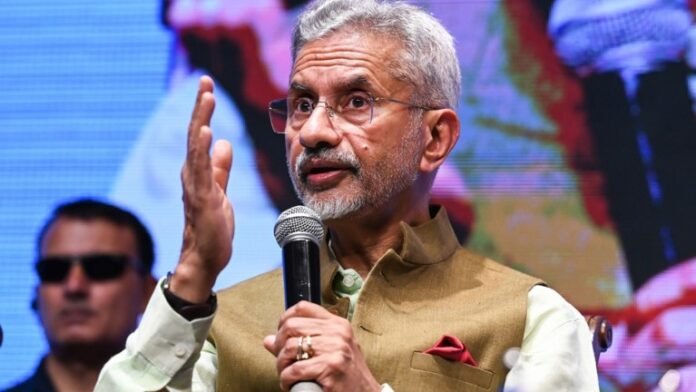Indian External Affairs Minister, Dr. S. Jaishankar, made it clear that India’s airstrikes in Pakistan in response to the Pulwama terror attack were more than just a military operation. He emphasized that the strikes were a “direct message” to Pakistan, indicating a significant shift in India’s approach to dealing with cross-border terrorism.
The Pulwama attack, which occurred in February 2019, was one of the deadliest in Kashmir’s history. A suicide bomber, belonging to the Pakistan-based militant group Jaish-e-Mohammed (JeM), rammed an explosive-laden vehicle into a convoy of Indian paramilitary personnel, resulting in the loss of 40 lives. The attack sent shockwaves across India and sparked widespread outrage.
In response to the Pulwama attack, India launched airstrikes on a JeM training camp in Balakot, Pakistan, marking the first time since the 1971 war that Indian warplanes had crossed the Line of Control (LoC) into Pakistani airspace to conduct a strike. The airstrikes were hailed by many in India as a bold and decisive response to terrorism emanating from Pakistani soil.
Dr. Jaishankar’s recent remarks shed new light on the strategic rationale behind the Balakot airstrikes. Speaking at an event, he stated that the strikes were not just a retaliatory measure but a calculated move to send a clear message to Pakistan. He emphasized that the airstrikes demonstrated India’s willingness and capability to take decisive action against terrorism, even at the risk of escalation.
The significance of Dr. Jaishankar’s statement lies in its broader implications for India’s national security strategy and its approach to dealing with cross-border terrorism. By framing the airstrikes as a “direct message,” he underscored India’s resolve to confront terrorist threats head-on and to hold Pakistan accountable for its support to militant groups operating against India.
The Balakot airstrikes marked a departure from India’s previous policy of exercising restraint in the face of terrorist attacks emanating from Pakistan. For years, India had relied primarily on diplomatic pressure and international condemnation to address cross-border terrorism. However, the Pulwama attack and subsequent airstrikes signaled a shift towards a more assertive and proactive approach.
Dr. Jaishankar’s remarks also highlight the broader geopolitical context in which India-Pakistan relations operate. The Balakot airstrikes took place against the backdrop of heightened tensions between the two nuclear-armed neighbors, with frequent ceasefire violations along the LoC and increasing incidents of cross-border infiltration by militants.
In the aftermath of the airstrikes, India-Pakistan relations reached a new low, with both countries engaging in a war of words and diplomatic maneuvering. Pakistan denied the presence of any terrorist infrastructure at the Balakot site and condemned India’s actions as a violation of its sovereignty. Meanwhile, India maintained that the airstrikes were a pre-emptive measure to prevent future terrorist attacks.
Despite the international community’s calls for restraint and de-escalation, tensions between India and Pakistan have remained high, with sporadic incidents of violence continuing along the LoC. The unresolved Kashmir dispute, which lies at the heart of India-Pakistan tensions, remains a major obstacle to peace and stability in the region.
Dr. Jaishankar’s assertion that the Balakot airstrikes were a “direct message” to Pakistan underscores India’s determination to safeguard its national security interests and protect its citizens from terrorist threats. It sends a clear signal that India will not hesitate to take decisive action when its security is threatened and that it expects Pakistan to take concrete steps to dismantle terrorist infrastructure on its soil.
Moving forward, India’s approach to dealing with cross-border terrorism is likely to be guided by a combination of diplomatic engagement, international pressure, and, if necessary, calibrated military action. Dr. Jaishankar’s statement serves as a reminder that India’s commitment to combating terrorism is unwavering and that it will continue to pursue all available means to ensure the safety and security of its citizens.
In addition, Dr. Jaishankar’s assertion that the Indian airstrikes in Pakistan were a “direct message” underscores India’s determination to confront cross-border terrorism decisively. The Balakot airstrikes marked a significant shift in India’s approach to national security, signaling a willingness to take bold action to protect its interests and send a clear message to its adversaries. As India navigates the complex challenges of regional security, Dr. Jaishankar’s remarks serve as a reaffirmation of India’s commitment to combating terrorism in all its forms.

